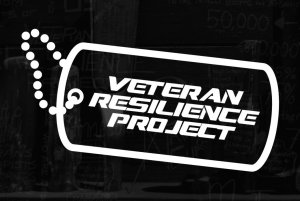COLLABORATOR
FROM THE BEGINNING, IN 2015, THE MISSION OF VETERAN RESILIENCE PROJECT (VRP) HAS BEEN TO MAKE EMDR TRAUMA TREATMENT AVAILABLE TO ALL VETERANS IN MINNESOTA.

Veteran Resilience Project
VRP was born from a successful 2014 pilot, engineered by Elaine Wynne, M.A., Licensed Psychologist and EMDR Certified Therapist. EMDR has been used successfully, worldwide for 30 years, to help over 2 million survivors of domestic violence, sexual assault, school shootings, and natural disasters, but has generally not been available to veterans.
Elaine, as a practitioner, worked for years to make that happen, and the pilot allowed 30 post 911 veterans to receive this therapy, at no cost, with the same success rate (74% no more PTSD symptoms; 100% lessened symptoms) indicated for years in trauma arenas worldwide.
This success led to a national mandate, calling for at least one EMDR therapist in each U.S. VA facility.
VRP maintains a statewide network of specially trained EMDR therapists, willing to see veterans with funds donated for that purpose. When a veteran calls, we refer to the VA first, but too many are not eligible. Also, some who are eligible are not willing to be seen at the VA, especially for issues of mental health or sexual assault. Plus, the reality is that one EMDR therapist at the VA is minimal for what is needed.
VRP applauds the existence and work of Minnesota Military and Veteran Exchange. The funding for our pilot allowed for several “Veteran World Cafe” gatherings, calling veteran advocates and groups together for purposes of collaboration. These were one time events, and we are excited that MNme has made this kind of effort permanent and ongoing. The care of veterans should not be about any single effort or organization. When soldiers are sent out to do things no one should have to be asked to do, there should be no arguing about care or resources for them when they return. We support all of us knowing what others are doing, so we can refer veterans to where the best help for specific needs is available in the moment.
VRP was started because EMDR has been generally unavailable to veterans, though for many it is better for dealing with traumas like PTSD. We are creating an effort to provide that service and advocate for it, but we are far less interested in building an organization than in seeing that veterans have the option of EMDR treatment. We support training in EMDR for more therapists at the VA. We advocate for more funding for EMDR therapy for veterans, whether thru the VA or efforts like VRP, and we encourage more EMDR therapists to reach out and find ways, pro bono or otherwise, to help veterans truly come home.
We also support that none of us become so institutionalized that we become unable to see and advocate for new things that emerge as clearly better for veterans than anything we know now.
